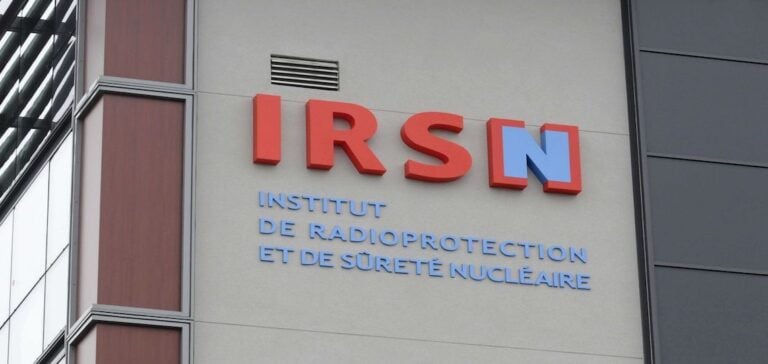A merger of the two institutions responsible for nuclear safety in France is desirable in view of the expected increase in the workload involved in monitoring present and future power plants, the authors of a parliamentary report said on Wednesday. The report, published on Tuesday, recommends merging the Institut de Radioprotection et Sûreté Nucléaire (IRSN), a safety expert, and the Autorité de Sûreté Nucléaire (ASN), responsible for decisions on power plants.
ASN-IRSN Merger: Towards a Simplification of Nuclear Safety Governance
In April, Parliament rejected this reform, which came from the Elysée Palace, amid criticism of the method and concerns about the transparency and quality of expertise. The Senate then commissioned a report from the Office parlementaire des choix scientifiques (Opecst).
“What led us to this recommendation (to merge) is the scale of the work before the decision-making body: the ASN makes over 2,000 decisions a year, of which only 400 come under the IRSN. So there’s a kind of dispersal of expertise,” Senator Stéphane Piednoir, one of the rapporteurs, told the press. “To cope with the coming decades, with the construction of EPR2s, ten-yearly inspections (of existing reactors), plus start-ups involving new technologies, it seems to us that, to improve the speed of decision-making, this is the right solution”, he said, adding that there is “no criticism of the quality of the work of either side”.
His fellow MP Jean-Luc Fugit (Renaissance) believes that new companies entering the sector would see things “more clearly”.
“With new operators, and the rise in power (of new nuclear power), perhaps it’s better to have a single safety organization, a simpler system, what we might call fluidification,” he said, estimating that this would make it possible to “simplify the governance of safety and even its financing”.
ASN-IRSN Merger: Controversial Report Calls for Delicate Reform
The report does not provide any further details on the organization of the new entity, noting “points still to be clarified” (what to do with IRSN’s commercial activities, in defense, etc.). Asked about the risk of destabilizing the system, Mr. Piednoir responds by calling for action to be taken from the start of the school year, “so that the system stabilizes by the beginning of 2025”. To achieve this, we’ll need a bill that can be debated, which can be “a short text” but “under no circumstances within a budgetary text that could be submitted to the 49-3, for example”, said Mr. Piednoir.
Since the announcement of the President’s intentions, IRSN employees, nuclear experts and members of parliament have been up in arms against the planned merger. On Wednesday, IRSN’s trade unions described the report as “partial and biased”, saying that Opecst was “at the service of the government”.
For former minister Barbara Pompili (Renaissance), “after careful reading… NOTHING in the body of the report seriously justifies the recommendation”. “Almost all of the desirable improvements can be made without a merger. So why propose it as a priority?” she tweeted.






















